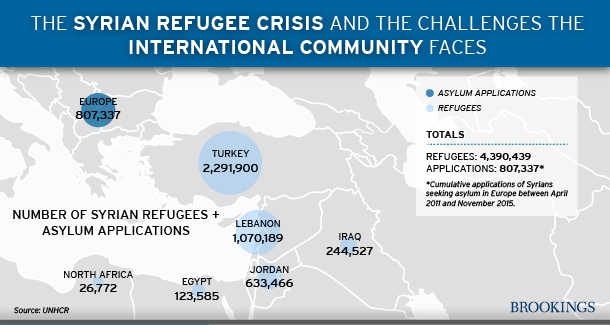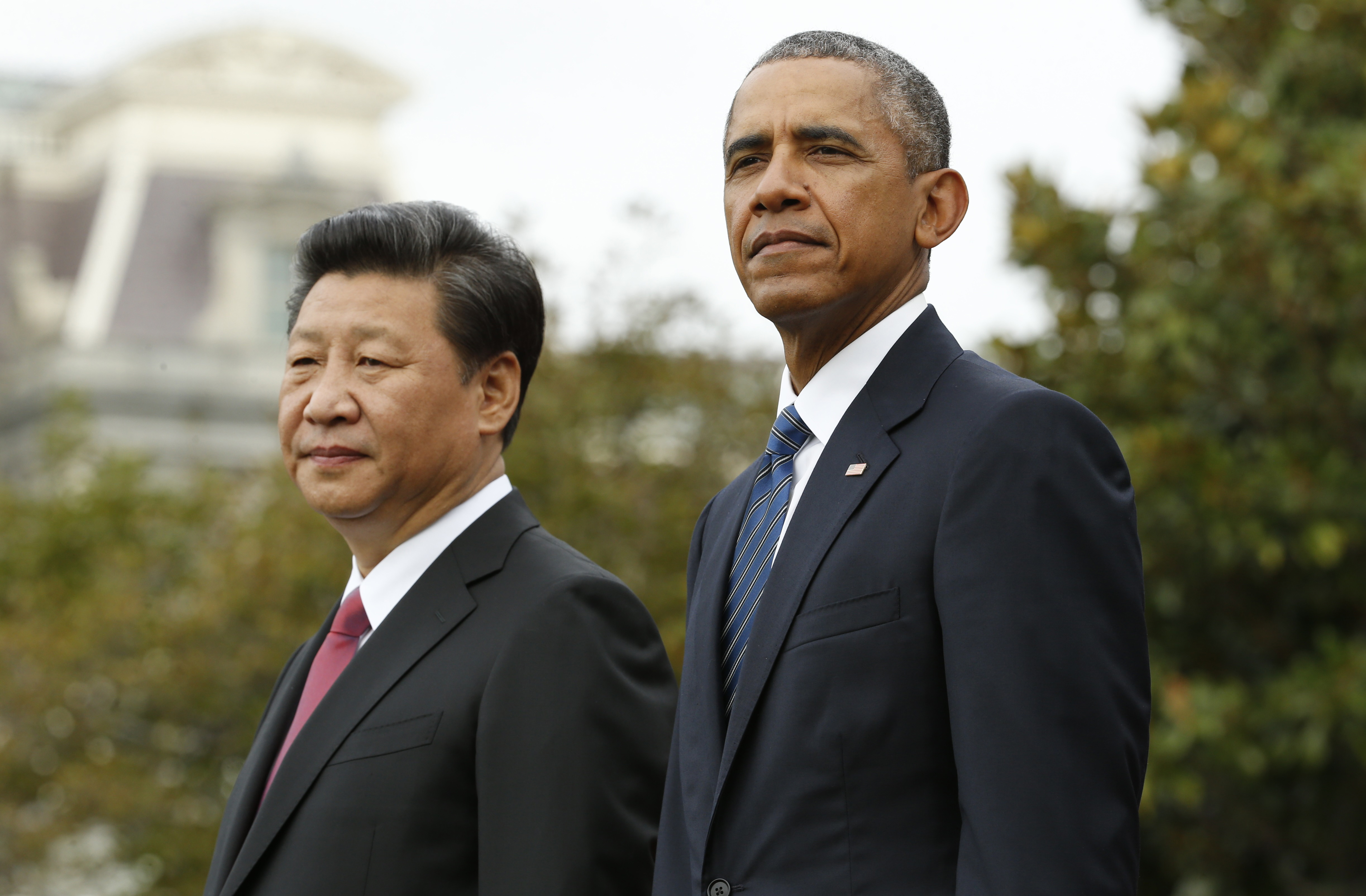2015 was hardly a slow year for geopolitics. From foreign interventions in Syria, to a nuclear deal between world’s major powers and Iran, to a landmark Asia-Pacific trade agreement, we saw great-power politics both roar its ugly head and advance unprecedented cooperation. Here are some of the most-read stories on the Order from Chaos blog this year:
|
26 |
As of March, 26 countries had joined the list of founding states of the Asian Infrastructure Investment Bank (AIIB). (There are now 57 prospective founding members.) As Jonathan Pollack wrote, cool responses from Washington and Tokyo “fuel[ed] Chinese suspicions that the United States and Japan [were] unprepared to accord China international standing commensurate with its increased economic weight.” He added that whether established powers’ interests are better served by being within the bank or outside of it remain to be seen. |
| 10 |
The same month, 10 countries—led by Saudi Arabia—launched a coordinated attack on Yemen. With many U.S. observers confused by the intervention, Jeremy Shapiro explained the Saudi interests at stake. He also wrote, as a reminder: “The United States is already fairly deeply involved in Yemen, regardless of whether the U.S. public has been paying attention.” |
| Beginning over the summer, hundreds of thousands of Syrian refugees started fleeing to Europe. As Kemal Kirisci wrote in September, the countries with receiving the most refugees—Turkey, Lebanon, and Jordan—are far overstretched. He contended that “[t]he EU refugee crisis needs to be seen against the background of the failure of the international community to help share the burden,” adding: “It is a sad time for international humanitarian governance.”
|
|
| $3 trillion | The same month, the Chinese stock market took a huge plunge, losing more than $3 trillion of wealth. But David Dollar wrote that the “real” Chinese economy—which is in need of new engines of growth—should be the focus of Chinese leaders’ efforts. “If it grows well,” David argued, “then the market will find its level and take care of itself.” |
| 6 | In July, 6 world powers struck an agreement with Iran to curb its nuclear program. But what explained Russian support for the deal? As Pavel Baev wrote, Russia feared it had a lot to lose from the opening of Iranian energy markets. But the key may have been Chinese pressure: “The Chinese wanted the deal for their own reasons and Vladimir Putin, for all of his bluster, is in no position to resist them.” |
| 10 | In August, U.S. presidential candidates began offering proposals—10 unproductive ones, by Will McCants’s estimate—to fight ISIS. From going back to old-fashioned American values to launching an Iraq-style surge to convincing our allies to step up, candidates have proposed ideas that don’t clearly establish, according to Will, “whether the United States should lead its allies against an enemy that threatens them more than it threatens us.” |
| In September, Chinese President Xi Jinping made his first state visit to the United States. Cheng Li critiqued simplistic characterizations of Xi’s leadership, demonstrating that he’s actually made some paradoxical policy moves. “Arguably,” Cheng wrote, “it is Xi’s contradictions that make him a well-rounded effective leader.” Jeff Bader put Xi’s visit in historical context, explaining that visits by Chinese presidents to Washington have often been tense, uncertain, or just plain awkward.
|
|
| 5; 12 | In October, after 5 years of negotiations, 12 Pacific rim countries struck a deal on the Trans-Pacific Partnership (the linchpin of the Asia rebalance, according to Jeff Bader and David Dollar). Mireya Solis lauded U.S. leadership in hammering out the political deal, but stressed: “we should not lose sight of the fact that more battles will need to be won before the TPP morphs from an agreement in principle to an agreement in reality.” |
| 42 | The same month, at least 42 people were killed when a U.S. aircraft struck a Doctors Without Borders hospital in the Afghan city of Kunduz.Michael O’Hanlon identified some early missteps on behalf of U.S. officials, concluding: “The hospital bombing was a bigger disaster than the United States has yet recognized. The United States cannot undo it, but it needs to face up to what has happened, and do so immediately.” |
| 48-96 | Also in October, the Russian military was flying 48 to 96 sorties daily over Syria—that was roughly on par with the monthly average of the American-led anti-ISIS coalition to date. Garrett Campbell argued that Russia’s air and naval capabilities in the Syrian theater are stronger than many Western pundits have claimed. “This isn’t just problematic for the facts’ sake,” Garrett contended, “more troubling, it risks skewing our assessment of how far Moscow will go in its Syrian intervention.” |
| 130 | In November, 130 people were killed in an attack coordinated by ISIS in Paris. Dan Byman explained that the attacks reflected shifting ISIS tactics: “If ISIS is indeed responsible, it shows it wants to strike its enemies everywhere.” |
| Editors’ Pick: Finally, take a minute to re-read the debates from within Brookings’s halls about whether the United States should arm Ukraine. Contending that “Washington needs to do more to get Russia to change course,” Steve Pifer and Strobe Talbott called for providing Ukrainians with more weapons. They further argued that “Ukrainians get a vote in this, and they care.” Jeremy Shapiro, for his part, cautioned against escalation with Russia, arguing: “The Ukrainian calculus is one of immediate desperation. But the United States needs to think for the longer-term.” Agreeing that Ukrainians should “get a vote,” he countered: “But the United States also gets a vote,” and the decision to provide (or not) weapons is ultimate its alone. | |
The Brookings Institution is committed to quality, independence, and impact.
We are supported by a diverse array of funders. In line with our values and policies, each Brookings publication represents the sole views of its author(s).






Commentary
Recapping 2015, in numbers
December 29, 2015